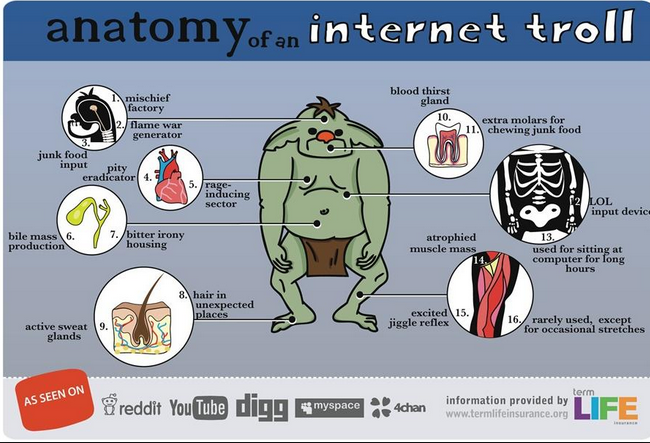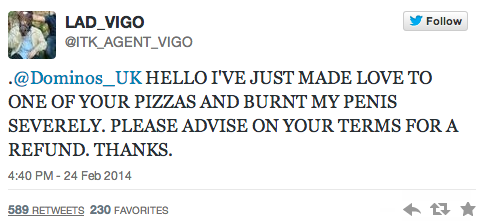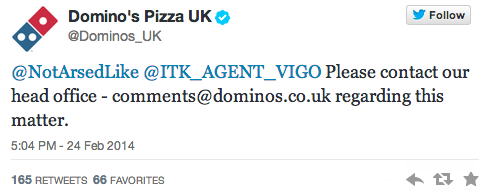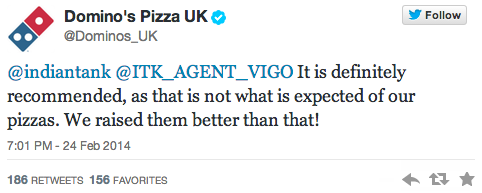Don’t Feed the Trolls – Research Reveals Psychopathy
For any person managing a company blog, Facebook Page or other online asset, we all know and think about the trolls. We advise, and are advised by, others to not feed the trolls. Now new research out of Canada confirms what we all knew – online trolls have psychopathic tendencies.
Years ago I worked at a company that was pretty innovative in a number of areas. In fact like many innovative environments, not everyone is pleased with the direction that the innovation is headed. Some people who feel that they are losing control become embittered and look for ways to cause chaos. While all this was bubbling under the surface and it was for the most part hidden, it would soon boil to the top when we launched our Facebook page for customer interactions.
Of course we trained and prepared our staff how to handle external discord. We were prepared for that. What we were less prepared for however, was that of the trolls who clearly surfaced from within the organization. As someone who was very proud to work for the organization it was very disheartening and alarming to see very personal and abusive attacks being made against certain people. I can’t articulate just how bad it was. Eventually we had to take steps to ban the offender or offenders. We finally found a solution, but it took awhile.
Over the years since this “experience” I have shared the details with many social media thought-leaders and they were quite perplexed. They found the circumstances extreme and were actually shocked when I shared some of the actual posts. It was one of the worst attacks that they had heard about.
Needless to say the posts were vicious and unrelenting. At the time I couldn’t help but wonder what was driving the person or persons to behave in this manner. I worried about the mental state of someone who could act in this way. Research released earlier this month by Canadian researchers Erin Buckels, a University of Manitoba psychology graduate student, and psych professors Paul Trapnell of the University of Winnipeg and Delroy Paulhus of the University of British Columbia, found the trolls were “Machiavellian in their manipulation of others and their disregard for morality.” Most disturbing however, is the finding that this is not an online phenomenon, but rather something that they like o do every day, whether on line or not. If you think about this, the ramifications are quite serious.
How to handle trolls depends on the situation. In my case, we probably should have just ignored them, but it was difficult when it was such a disturbing attack on members of the executive. It was hard for employees to look at the posts when monitoring. More recently however, Dominos did an excellent job at addressing a troll. Here are some of the tweets:
So, how did Domino’s do? They did a great job. They stuck to message and no doubt have a great Playbook that helped guide them through this. They also kept the responses to a smaller audience. The trolls made sure that everyone could see their posts by using a “.” at the beginning of their tweets. When Domino’s responded however, they did not respond the same way. Instead, they just responded to the offender. As a result, only the people following both the troll and the Domino’s could see the response. By doing this they aren’t making a big deal of this. In the end, they shut it down.
Want to learn more about marketing, communications and strategy? Be sure to visit us at TaylorMade Solutions.




